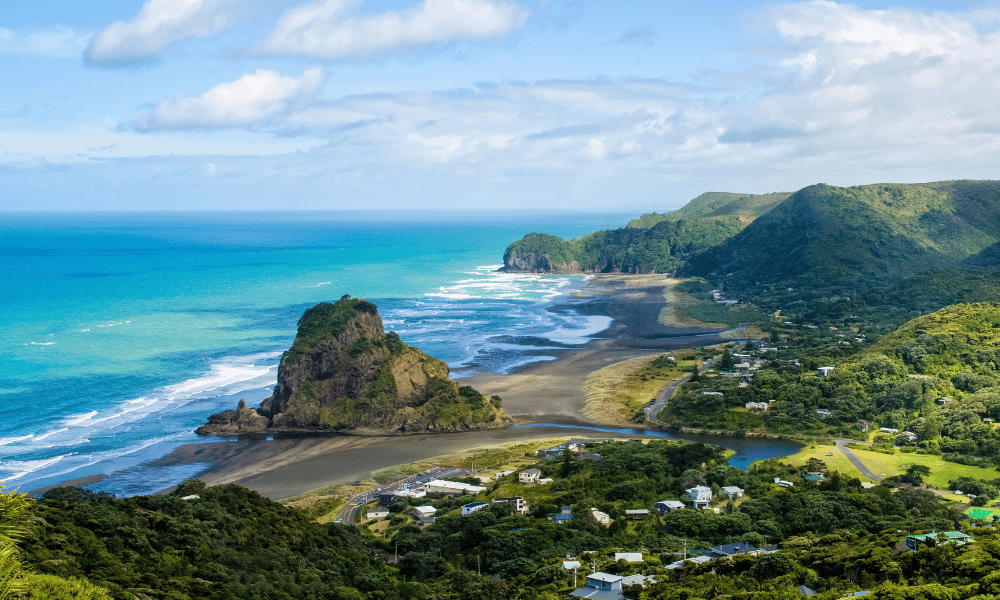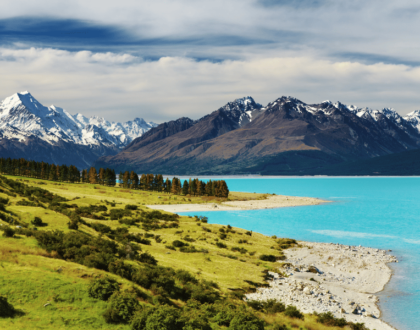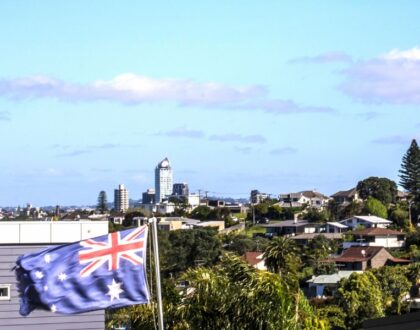Moving to New Zealand Checklist: Your Essential Guide

by Hayley
Planning a move to New Zealand? Whether you’re relocating for work, family, or a fresh start, moving from the UK to New Zealand is a major life decision — and one that requires careful planning. With its stunning natural landscapes, welcoming communities, and high quality of life, New Zealand is a top destination for British expats, but getting there takes more than just booking a flight.
From applying for the right visa and securing accommodation to shipping your belongings and adjusting to Kiwi culture, there are several important steps to consider. A smooth transition starts with being well-prepared — and that means understanding the legal, logistical, and lifestyle changes that come with an international move.
At Simpsons International Removals, we’ve helped countless UK families and individuals relocate to New Zealand with ease. In this guide, we’ll share our top tips for a stress-free move, so you can focus on starting your next chapter with confidence and peace of mind.
Research and Plan Your Move
Research and planning are key to a successful move to New Zealand. Here are the steps to follow:
- Decide on a visa route that fits your situation.
- Choose between temporary visas or permanent residency.
- Understand the eligibility criteria.
- Gather the necessary documents.
- Review the immigration process on the New Zealand immigration website for a smooth relocation.
Explore different regions of New Zealand to find the best fit for your lifestyle, career, and community preferences. The country’s stunning landscapes and welcoming communities are significant attractions. Research house prices and housing options to determine where you want to settle.
Once you have a solid plan, start packing and contact a reliable relocation company to assist with your move.
Budgeting and Financial Planning
Effective budgeting and financial planning are crucial for moving to New Zealand. Living expenses for a single person in major cities include:
- Monthly living expenses: New Zealand dollars 3,500 to 4,000
- Average weekly rent in Auckland for a two-bedroom house: NZD 745
- Monthly groceries: NZD 450 to 500
- Monthly transportation costs: around NZD 200
Factor in all moving costs, including hiring a relocation company, shipping, and initial living expenses. Include real estate fees, visa application charges, and rental deposits in your budget.
Open a New Zealand bank account online from the UK with banks like ANZ to manage rent and daily expenses. Services like Wise offer low fees and mid-market exchange rates for managing money between the UK and New Zealand bank accounts.
Gather Important Documents
Gathering all your personal paperwork is crucial for your move. Essential documents include:
- Passports
- Visas
- Birth certificates
- Medical records
- School records
Ensure your visa requirements match your intended purpose of stay to avoid any last-minute issues.
Medical records, including dental records, are particularly important. For children, gather school transcripts, immunisation records, and other relevant documentation. Start collecting these documents well in advance to avoid delays. Contacting relevant institutions early will help streamline the process.
Choose a Reliable Moving Company
Selecting a reliable moving company is crucial for a smooth relocation. Reputable companies like Simpsons International Removals, a trusted removal company, specialise in overseas removals from the UK to New Zealand, offering air freight for quick delivery and sea freight as a more economical option for household removals.
Their comprehensive services include professional packing, door to door collection and delivery and customs clearance in New Zealand, easing the import process.
Simpsons recommends shipment protection cover for peace of mind while your belongings are in transit. Begin the removals process by calling their team or using their International Removals Cost Calculator for a quote.
Packing and Shipping
Packing and shipping your belongings require careful planning. Here are some important steps to follow:
- Create a detailed packing list to avoid forgetting essential items.
- Declutter unnecessary items to reduce volume and improve organisation.
- Label each box with its contents and the room it belongs to for easier unpacking.
- Prepare an inventory list detailing each box’s contents, which is important for customs.
Clean all items to avoid delays during customs inspections. Make a list of essential items to pack in your carry-on luggage for the first few weeks.
Professional packing services offer:
- Expert packing and export-quality materials, ensuring your belongings arrive safely.
- Transparent pricing.
- A comprehensive moving checklist to help make your move stress-free.
Arranging Accommodation
Confirm your accommodation arrangements before departure. Short-term housing options include:
- Hotels, motels, and Airbnb are obvious choices, which vary in price depending on the season.
- Holiday parks, offering cabins and tourist flats, provide economical short-term housing with communal facilities.
- Holiday homes in New Zealand, known as ‘baches’ in the North Island and ‘cribs’ in the South Island, are also temporary accommodation options.
Booking platforms like Wotif can help you find a range of accommodation types, often with discounts for longer stays. For long-term rentals, real estate websites and rental agents are valuable resources to book accommodation.
In New Zealand, a tenancy agreement is required when renting a property. This document outlines the rental terms and conditions. Buying property requires that you must be a permanent resident, citizen, or hold a residence-class visa with permission, which can take up to a year to obtain, so it is not an option for most migrants when they first move to New Zealand.
Setting Up Utilities and Services
After securing accommodation, set up essential utilities like:
- Electricity
- Gas
- Water
- Internet access services
Companies such as Genesis Energy, Meridian, or Contact Energy can provide electricity and gas services. Compare different internet provider plans to find the best options. Utility costs in New Zealand are generally higher than in the UK, so budget accordingly.
Review and cancel any redundant direct debits from your UK accounts to avoid unnecessary charges. Promptly setting up utilities will ensure a smooth transition and help you settle into your new home comfortably.
Healthcare and Insurance
Healthcare and insurance are crucial considerations when moving to New Zealand. Key points to consider include:
- Register with a local GP to access healthcare services.
- New Zealand offers a comprehensive healthcare system with public services for permanent residents and private options.
- The public system provides essential healthcare.
- Private health insurance can reduce wait times for specialists.
- Private insurance can cover treatments not included in public funding.
Ensure all medications you plan to bring are acceptable in New Zealand. The Accident Compensation Corporation (ACC) covers accidental injuries for all individuals.
Consider car insurance and private health cover to ensure full protection in your new country.
Understanding Local Culture
Understanding the local culture is essential for integrating smoothly into New Zealand society. The culture is influenced by European, Maori, and Pacific Island traditions. Kiwis are known for their welcoming nature, making it easier for newcomers to establish friendships. Participate in community gatherings and festivals to immerse yourself in the local culture.
To integrate into the community, consider the following:
- Engage in local events and join social clubs.
- Understand Maori traditions and language to foster social integration and promote cultural respect.
- Participate in online forums and social media groups for expats to gain valuable advice and encouragement.
Job Search and Employment
Finding a job in New Zealand requires preparation and research. Here are some visa options related to working in New Zealand:
- Essential Skills Work Visa: Allows individuals to work temporarily in New Zealand with a job offer and required qualifications.
- Skilled Migrant Category Visa: For migrants with in-demand skills, providing a pathway to permanent residency.
- Accredited Employer Work Visa: Requires a job offer for approval.
Several visas, like the Accredited Employer Work Visa, require a job offer for approval.
Proof of employment or an offer letter from a New Zealand employer is often necessary for work visa applications. Employers in New Zealand value skills-based CVs that highlight relevant abilities over a complete job history, including employment references.
Helpful resources for finding a job in New Zealand include the ‘Green List’ and careers.govt.nz. Begin your job search early to secure employment before your move.
Schooling for Children
Schooling for children is an important consideration for families moving to New Zealand. Key points include:
- Children must be enrolled in school from the ages of 6 to 16 or receive home education.
- Parents can enrol their child in school before their fifth birthday.
- Many schools have specific zones that guarantee enrollment for children residing within them.
State schools in New Zealand are free for domestic students aged 5 to 19. If a child lives outside a school’s zone, they may still apply, but admission is not guaranteed. Enrolling in a new school, a private or state-integrated school, may incur fees.
Various student visas are available, such as the Fee-Paying Student Visa, which allows for part-time work while studying.
Transportation and Car Hire
Transportation and car hire are essential aspects of settling in New Zealand. When renting a car, consider the following New Zealand tips:
- Fuel efficiency and ongoing maintenance costs
- Obtaining appropriate car insurance to protect against potential accidents and vehicle damage
- Using Transfercar, a service that rental car companies often use, allows individuals to relocate cars for free.
To drive in New Zealand, you must have a valid driver’s license or an International Driving Permit (IDP). Public transportation options include buses, trains, and ferries, making it accessible for newcomers without a personal vehicle. In Auckland, consider buying a local transport card, like the AT HOP card, for easy access to public transportation.
Settling In
Settling into a new country can be challenging, but it’s also an exciting opportunity. Easier integration is facilitated by the fact that English is the primary language in New Zealand, helping expatriates communicate and engage more effectively.
Attend social functions and community events to connect with locals and establish friendships. Exploring local amenities and services helps you feel more at home and get accustomed to your new surroundings. With a bit of effort, you’ll soon find yourself making new friends and enjoying your new life in New Zealand.
Notify Relevant Authorities
Notifying relevant authorities is an important step in your move. Obtain a police checks clearance certificate to ensure there are no criminal records when relocating to New Zealand. Redirect your mail through the local post office to avoid missing important correspondence.
Notify friends, family members, and important institutions of your new address as soon as it’s available. This formal notice helps maintain important connections and ensures a smooth transition.
Wrap-Up and Final Preparations
As you approach your moving date, it’s time to wrap up and make final preparations:
- Select a reputable moving company like Simpsons International Removals to help with logistics and shipping.
- Inform your current employer, pension company, Inland Revenue, and other relevant authorities about your move.
- Organise travel insurance for peace of mind during your journey.
Compile essential documents such as passports, visas, birth certificates, medical records, and school records for a smooth relocation process. Arrange to redirect your mail via the post office to ensure important communications are received after your move with the assistance of a migration agent, and visit the passport office if necessary.
Start packing early and use a moving checklist to ensure nothing is left behind.
Summary
Moving to New Zealand is a whole new adventure — with new opportunities, stunning scenery and a great lifestyle. By planning ahead and following the steps on visas, budgeting and cultural integration you’ll make the transition so much smoother and more enjoyable.
At Simpsons International Removals, we take the stress out of your international move. Whether you’re moving a few precious items or your whole household, our expert removals to New Zealand service offers a full door-to-door solution — including professional packing, shipping, customs clearance, and final delivery to your new home.
Ready to get started? Get a free quote today or check out our Top Benefits of Moving to New Zealand blog to discover why so many people choose to start a new life there.
Recommended Posts

Top Tips for Moving to New Zealand for Work
Tuesday, 7th October 2025

The Top Benefits of Moving to New Zealand
Friday, 13th June 2025

Top Picks: Best Places to Live in New Zealand for Expats in 2025
Monday, 13th January 2025






